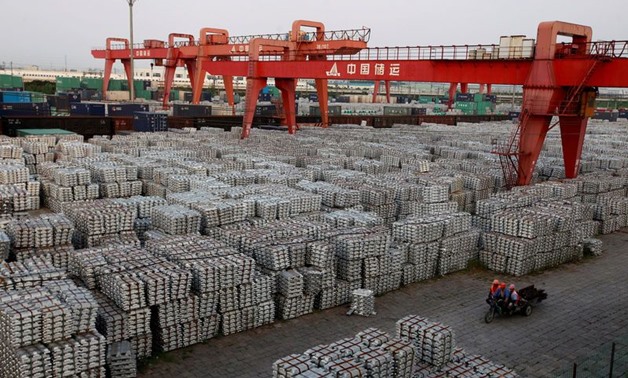
Republican pushback on Trump tariffs gathers steam as president stands firm - AFP
WASHINGTON/MEXICO CITY - 7 March 2018: Republican lawmakers stepped up calls on Tuesday for President Donald Trump to pull back from proposed tariffs on steel and aluminum imports as Senate Majority Leader Mitch McConnell added to an avalanche of criticism.
Critics worry that the measures risk igniting a trade war and damaging the U.S. economy. But the Republican president showed no sign of backing down, reaffirming his belief the United States could win any trade war since it was running such a large trade deficit with so many countries.
"When we're behind on every single country, trade wars aren't so bad," he told reporters at the White House at a news conference on Tuesday with the Swedish prime minister.
Another prominent Republican critic of the proposal, House of Representatives Speaker Paul Ryan, returned to the attack on Tuesday, saying the proposed duties of 25 percent on steel and 10 percent on aluminum were too broad. Although the measure is designed to hit China, its main impact will be on U.S. allies like Canada.
Ryan, whose home state of Wisconsin could be hit by proposed counter-tariffs from the European Union, has consistently opposed the tariffs and called for "more surgical and more targeted measures."
The White House has said the measures will protect industries and jobs from unfair competition and that across-the- board tariffs are needed because countries like China use third countries for shipping steel to the United States, disguising its origin.
Opponents charge that the tariffs could destroy more jobs than they create, risk alienating U.S. allies and that American consumers will end up paying more for a range of products from cans of beer to cars.
"There is a lot of concern among Republican senators that this could sort of metastasize into sort of a larger trade war, and many of our members are discussing with the administration just how broad, how sweeping this might be," McConnell said in his first comments on the issue.
Financial markets have rallied off their lows on expectations the measures may be watered down in the face of an intense lobbying effort from leading Republicans.
On Tuesday, Representative Mark Meadows, the head of the Freedom Caucus, a staunchly conservative Republican grouping in Congress, raised concerns about the impact of the tariffs on U.S. manufacturing and agriculture. Agriculture is a potential target for retaliatory tariffs from China if Trump pushes ahead.
Meadows, who spoke to reporters after a closed-door meeting with House Republicans, said: “Most of the conversation I heard was not in support of that particular decision.”
Trump was presented with three options by the Commerce Department. The broad tariffs that he announced last week were one. He also had the option of a much higher duty of 53 percent on steel imports on a narrower group of 12 countries that did not include Canada, Mexico and the European Union, although all countries would be subject to quotas.
For aluminum, China, Hong Kong, Russia, Venezuela and Vietnam would be subject to direct tariffs and others to quotas.
The final option called for quotas for both industries to limit imports.
MEXICO FIRES BACK
Washington said on Monday that if Canada and Mexico agreed to its demands in the NAFTA talks, they could be exempted from the proposed steel and aluminum tariffs. Trump repeated the proposal on Tuesday after the trilateral talks ground to a close following six months of discussions that have achieved little progress.
Both Mexico and Canada have rejected the proposal.
Mexican Economy Minister Ildefonso Guajardo raised the prospect of reprisals if Washington pushed ahead with tariffs and insisted the North American Free Trade Agreement remain "a trilateral accord" in response to a U.S. proposal to hold talks with Canada and Mexico separately.
"There's a list (of U.S. products) that we are analyzing internally, but we won't make it public, we're going to wait," Guajardo told the Televisa network in an interview.
Canada has also said it would take counter-measures, as has the European Union.
Trump took aim at the EU at his news conference with Swedish Prime Minister Stefan Lofven, saying the bloc had treated the United States unfairly on trade.
Trump has vowed to cut America's trade deficit and accuses countries like China of cheating. He has launched an investigation into intellectual property abuses by China, a move that could dwarf any impact of the steel and aluminum proposals and trigger a sharp response from Beijing.
Fred Bergstein, who held top economics posts in a series of U.S. administrations and is a senior fellow at the Peterson Institute for International Economics think tank, warned on Tuesday that the proposed tariffs would undermine Washington's efforts to rein in China by alienating potential allies.
"President Trump's recent trade actions, especially the announced plans to impose tariffs on steel and aluminum, will have little effect on China. In fact, they will make confronting China with an alliance of trading partners much harder," he said.

Comments
Leave a Comment